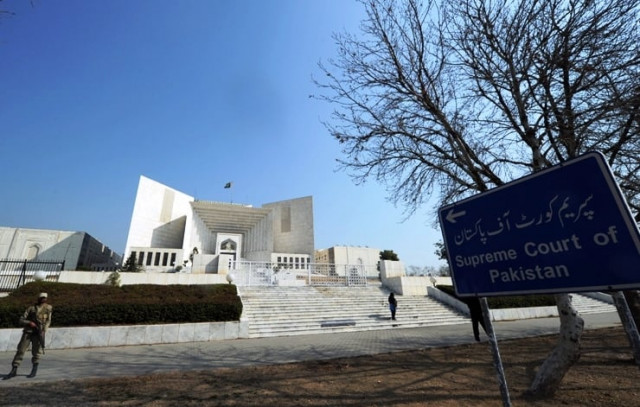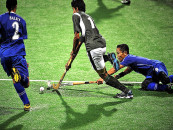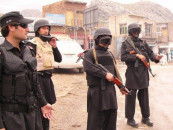‘Missing’ prisoners: Adiala men ‘denied bail for their hand in attack on army’
Seven prisoners are currently at an internment centre in K-P.

‘Missing’ prisoners: Adiala men ‘denied bail for their hand in attack on army’
The Supreme Court was informed on Friday that the internment authority turned down the release applications of two out of seven Adiala ‘missing’ prisoners for their involvement in attacks against the army.
During a hearing of the case of 11 ‘missing’ prisoners, Deputy Attorney General Dil Muhamamd Alizai told a three-judge bench of the apex court that prisoners Abdul Majid and Abdul Basit were caught fighting against armed forces and were involved in attacks on armed forces’ convoys. Therefore, for the time being, their applications were not considered.
During the last hearing, the court sought reasons from the governor of K-P for refusing to entertain the application of two out of the seven surviving missing prisoners, who are currently being kept in an internment centre in K-P under Regulations Action in Aid of Civil Powers 2011.
Four of the 11 prisoners already died in the custody of the premier intelligence agencies of the country – the Inter-Services Intelligence (ISI) and Military Intelligence (MI).
The Khyber-Pakhtunkhwa governor is the interment authority; however, he had delegated his powers to an army officer. After hearing the case of the two detainees, the army officer turned down their request for bail.
Tariq Asad, the counsel for Majid and Basit, told the court that his clients availed the request for bail before the interment authority but their petition had been pending before the court. He added that the main issue over the illegal detention of his clients by intelligence agencies for 20 months is yet to be settled by the Supreme Court.
Asad said that initially, the Inter-Services Intelligence had denied being aware of the ‘missing’ prisoners and later confessed having custody of them. He added that while the agency said that the detainees would be tried under the army act, after a passage of 20 months, they were shifted to an internment centre.
Chief Justice Iftikhar Muhammad Chaudhry observed that the court would examine these points on the next date of hearing, while issuing notices to all parties of the case regarding a petition filed by Asad.
The court also indicated that it could examine its power of jurisdiction to intervene in this case after the enactment of Actions (in Aid of Civil Power) Regulation, 2011, which provides legal cover to armed forces for unlawful acts committed during military operations in federally and provincially administered tribal areas.
Advocate Asad complained that, being the prisoners’ lawyer, he suffered abuse at the hands of Fata Additional Chief Secretary Tashfeen. “The secretary misbehaved with me and asked me to get out from his office,” he told the court. The chief justice warned the official to remain careful in the future while dealing with an officer of the Supreme Court.
Meanwhile, Justice Jawwad S Khawaja, pointed out to the counsel for the ISI and the Military Intelligence and the advocate general of K-P that they should perhaps observe how the Holy Prophet (PBUH) and his companions behaved (dealt with prisoners) in a state of war.
“We will not allow you to abuse these prisoners. It is binding for you to provide an opportunity of a fair trial,” he added.
In his petition, Advocate Asad demanded a record of the proceedings conducted under the army act and prayed the court to take action against those responsible for the deaths of three of the prisoners.
He further stated that the prisoners were not subject to the army act and should, therefore, be set free. The court will resume hearing after two weeks.
Published in The Express Tribune, May 19th, 2012.



















COMMENTS
Comments are moderated and generally will be posted if they are on-topic and not abusive.
For more information, please see our Comments FAQ